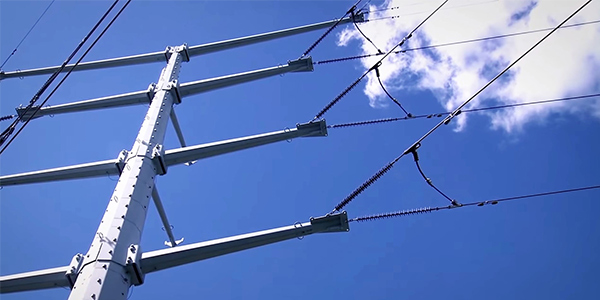MISO state regulators are mulling over “postage stamp” rates, decarbonization goals and portfolio groupings as part of advice it will later send to the grid operator on the cost sharing of new transmission.
The Organization of MISO States is putting together a list of guiding principles for allocating the costs of MISO’s upcoming long-term transmission plan. (See MISO Prepares Members for Pricey Transmission Expansion.)
During a teleconference of OMS’ Cost Allocation Principles Committee on Monday, several regulators said that MISO should not socialize transmission benefits through a postage-stamp rate — one that is flat and footprint-wide and does not take geography into consideration. They said MISO should instead look for more specific beneficiaries to assign costs. The Transmission Owner sector has said the grid operator’s hourglass-shaped footprint means that such a blanket allocation will never make sense.
However, Minnesota Public Utilities Commissioner Matt Schuerger said he did not want stakeholders to preclude a subregional postage-stamp method. He asked other regulators to be cautious about “false precision and getting too granular.”
“We should be locking in as much as the analytical precision allows us. I think other conversations ignore that inputs are uncertain. The outputs are ‘roughly commensurate,’ not ‘exactly commensurate,’” Schuerger said, referencing FERC Order 1000’s principle of allocating project costs “in a manner that is at least roughly commensurate with their benefits.”
Indiana Utility Regulatory Commissioner Sarah Freeman said that OMS’ draft principles would urge MISO to use the “roughly commensurate” principles as the “bare minimum” standard for cost allocation.
“Postage stamping is essentially saying, ‘We don’t have the tools to get there,’” Michigan Public Service Commissioner Dan Scripps said.
OMS solicited cost allocation advice from stakeholders as part of the work. Several said MISO should explore the creation of new benefit metrics beyond adjusted production costs, avoided reliability projects and savings when a project can reduce dependency on the RTO’s Midwest-to-South transmission constraint. Others asked that MISO minimize free ridership on new transmission investment.
Clean Grid Alliance advised that evaluation of a cost-effective project should not “be overly conservative; otherwise consumers will not reap the economic benefits of new economic transmission infrastructure.”
Schuerger said MISO also should not foreclose the idea of approving projects by portfolio rather than on an individual basis. He said portfolios would be useful in regions where many transmission projects are needed. RTO executives have indicated that long-term transmission recommendations will come in annual Transmission Expansion Plans, not in a special portfolio.
“Those projects have to be put together thoughtfully and deliberately for it to make sense,” Wisconsin Public Service Commission Chair Rebecca Valcq said.
A few regulators said states should not pay for transmission to further the decarbonization goals of other states. MISO has said it needs to address its “rapidly worsening deliverability” so that members can achieve their decarbonization goals and renewable targets.
Scripps suggested MISO planners put a temporary “blindfold” on regarding public policy considerations and examine a project’s reliability and economic benefits first. He suggested that projects could be first allocated based on reliability and economic needs, and then any remaining costs divided up among states who want to pursue decarbonization.
A study published by MIT last week found that nationally coordinated transmission planning can reduce costs by as much as 46% when compared to standalone state decarbonization efforts.




